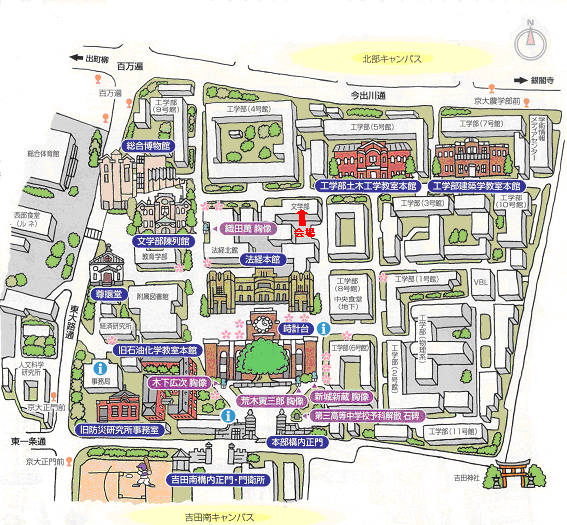
Kamil先生 講演会
米国ネブラスカ大学のAlan Kamil先生にお話をいただく機会を得ました。Kamil先生は、長年にわたり、鳥類の認知と行動を、生態学的視点から実験的に研究してこられた方です。現在生物科学学部のDirectorであり、生物科学と心理学の教授を務めておられます。今回は、カラス科の2種の鳥、ハイイロホシガラスとマツカケスを対象におこなわれた実験の成果にもとづいて、空間課題、記憶課題、推論課題などの遂行に見られる種差と彼らの生活様式との関連性をお話しいただく予定です。どうぞお気軽にご来聴下さい。参加費は無料です。
なお、9/2〜3と京都大学21世紀COEプログラムによるThe 4th International Workshop for Young Psychologists on Evolution and Development of Cognitionが京大会館でおこなわれますので、どうぞこちらにもご参加下さい(詳細は https://www.psy.bun.kyoto-u.ac.jp/COE21/ をご参照下さい)。Kamil先生もご参加の予定です。こちらも参加費は無料です。
問合せ先 藤田和生(kfujita@bun.kyoto-u.ac.jp) 電話(FAXとも)075-753-2852
日 時: 2006年9月1日(金) 15:30〜17:30
場 所: 京都大学文学研究科新館 2階 第6講義室
講演題目: Natural History and Cognition: Social and Spatial Abilities in Corvids (自然史と認知:カラス類の社会的・空間的能力)
講演者: Alan C. Kamil博士(University of Nebraska at Lincoln)
講演要旨: Development and maintenance of brain tissue is very expensive. This implies that cognitive functioning must be of great selective value, yet we know little about the specific selective pressures that favor the evolution of cognition in animals. One approach to investigating this issue is to compare closely related species that differ in their ecology and natural history to test specific hypotheses about factors that favor the evolution of specific cognitive abilities. We have applied this approach to spatial and to social cognition in North American birds of the corvid family. In the case of spatial cognition, we have tested the hypothesis that dependence on stored (scatter-hoarded) food will select for improved spatial memory abilities. We have found that birds that are heavily dependent on such food, especially Clark's nutcrackers, perform better than less dependent species on tests of spatial memory in a variety of settings including cache recovery, open-room mazes and operant delayed nonmatching-to-sample. This clearly supports the hypothesis. In the case of social cognition, we are concentrating on the relationship between the complexity of the social groups in which birds live and socially relevant cognitive tasks, taking advantage of the high degree of sociality of pinyon jays. We have found that pinyon jays can draw inferences about transitive relationships from observations of real-life social encounters. They also perform well on operant tests of transitive inference. Although much work remains to be done, these data are consistent with the hypothesis that living in highly social, structured groups can provide a setting in which specific cognitive abilities are favored by natural selection. These results suggest a dynamic view of cognitive evolution, one consistent with morphological evolution and with the emerging view of the sophistication and complexity of avian brain and cognition.
<会場案内図>

2)阪急河原町駅から
市バス201号系統、3号系統に乗車、「百万遍」下車、徒歩5分
3)京阪出町柳駅から徒歩15分
なお、本講演会は第45回国際心理学セミナーとの共催になります。